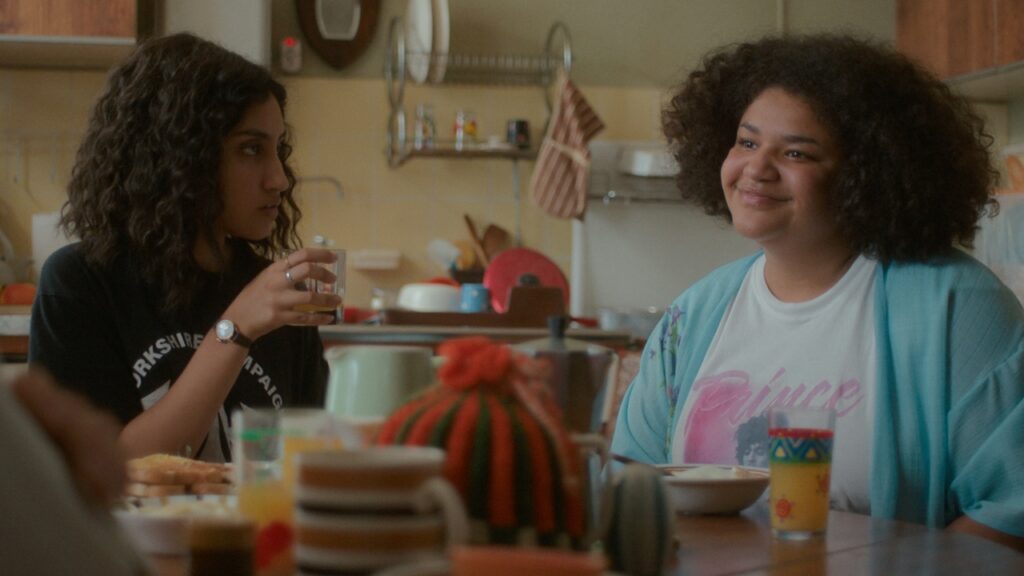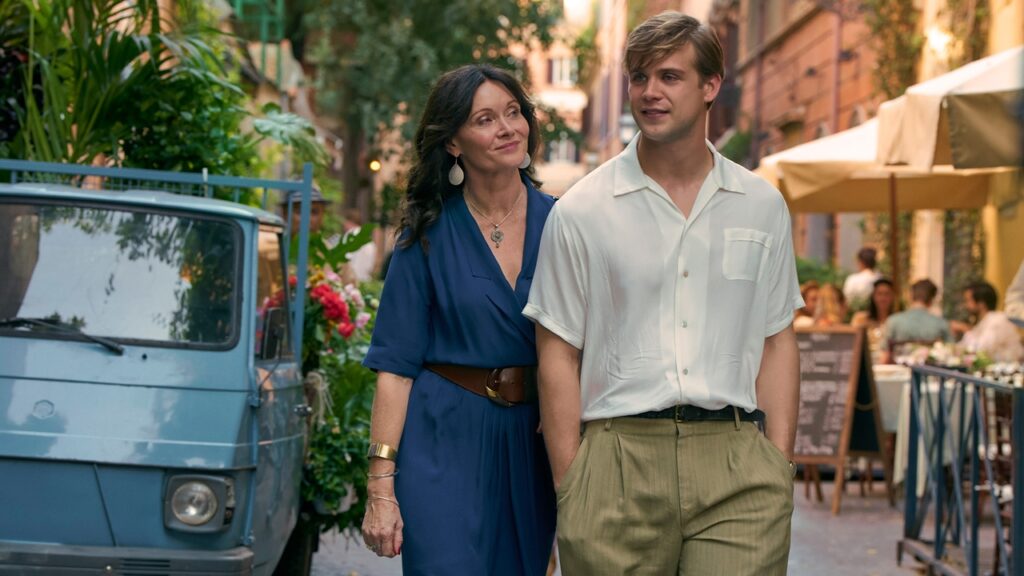Read also:
How to Watch FX Live Without CableHow To Watch AMC Without CableHow to Watch ABC Without CableHow to Watch Paramount Network Without CableNetflix’s new romance limited series offers a thoughtful, warm adaptation of the 2009 novel.
The hook of author David Nicholls’ 2009 novel is irresistible. Readers catch up with two former classmates who are something more than friends but not quite lovers on the same day, July 19, every year from 1988 to 2008. It’s no wonder it has managed two adaptations in the 15 years since its release—first as a 2011 movie directed by Lone Scherfig from a script by Nicholls himself and now as a limited series created by Nicole Taylor, with only one Nicholls’ script among the fourteen episodes.
Dexter Mayhew (Leo Woodall) is handsome, charismatic, and just rich enough not to worry about making a plan for his future. Emma Morley (Ambika Mod) is also quite attractive—although she can’t (or won’t) see it—and from a working-class background that makes her feel as though she can’t pursue her clear goal for the future: to become a writer. They travel in different circles, but on the night of graduation, they end up falling into her bed. While they kiss plenty, it never goes further, Emma preferring to chat despite her massive and evident crush on Dexter.
By the next day, despite their differences, they have sunk their proverbial hooks into one another. While both follow winding paths with mixed results, they can’t seem to shake one another. They become each other’s satellites, lucky (or doomed?) to exist in each other’s orbits. As they continue to rotate and bounce off one another, One Day depicts time’s passage through changing music, language, and fashion well without ever laying it on too thick. As in life, things linger past their expiration date—a slang expression here, a blazer there. It smartly demonstrates how time passes in part by showing how things seem to barely change for years and then all at once.

Once you get past the hook, One Day does offer a lot that’s familiar. One member of the twosome guards themselves strongly, leading the other not to commit lest they face rejection. Class and success issues fuel disagreements. Substance abuse makes one impossible to deal with. Apart from each other, the beats are recognizable as well. There are ill-advised affairs with co-workers, called-off engagements, babies, career upheavals, divorces, and deaths.
Instead of feeling cliched, however, the writing team—lead by Taylor, who pens eight episodes—and directors—Molly Manners, Luke Snellin, John Hardwick, and Kate Hewitt—create a world for the series that makes the events feel recognizable, human. Sure, not all of us will be television presenters, but we can relate to sure thing careers that blow up in our faces or “the one” who turns out to be just another heartbreak. We may not be Emma or Dexter, but we’ve lived lives like theirs. We’ve known people like them.
Woodall and Mod’s performances are especially effective in cultivating this sense of “average” without being uninteresting. Despite both being far above the average in terms of good looks in that uniquely television way, there’s a quality to both that keeps them grounded. Even when they give in to physical desire, they don’t generate white-hot sparks. Instead, they have the kind of chemistry that a viewer might recognize as those friends or partners who have been together for years. Their connection isn’t the stuff of bodice-ripping passion but the kind that’s in for the long haul. There’s genuine warmth to their interactions, which makes the moments when they break apart all the more painful.

While most episodes follow a fairly rigid formula—one episode equals one July—the final few upend the format. It gives us several years of July 15ths in each roughly 30-minute installment down the home stretch. It’s a storytelling tool that conveys how time seems to quicken as one ages, how it slips away just as a person seems to get settled. It also sharpens the focus on our two leads further. The series only affords the audience brief glimpses of the strong supporting cast including Tim McInnerny as Stephen, Dexter’s father, and Amber Grappy as Emma’s best friend Tilly. Like life, as time goes on, making room for everything and everyone grows harder. Often, no matter how beloved someone may be, you see them less and less.
One Day refusing to use aging makeup furthers this sense of the strange ways time does and does not pass. While characters often comment on thickening waistlines or thinning hair, Emma and Dexter change little physically. In fact, only their clothes and hairstyles seem subject to the whims of time. In real life, all but the most genetically gifted of us will show some mileage as 20 years tick on. However, the series puts us into Emma and Dexter’s subjective perspective in this way. It literalizes that cliché about one knowing their age from the calendar or the mirror but still feeling 22 inside.

The show is at its best when it spotlights the different kinds of love one can find in life. For example, for most of the series, Stephen and Dexter’s mom, Alison (Essie Davis), present a distant, companionate couple. However, a late flashback reveals a deeper, sweeter facet to their love. It reminds viewers of how little anyone can know of the intimate connections between others. The show also highlights the unhealthy bond of families that make everyone else, including new partners, feel like outsiders, parents and children, and how age changes what that love looks like, and lopsided romances where one is all in and the other cares but not enough.
Again, none of it will feel like something an audience has ever seen before. By centering one hook, the show focuses the rest of its energy on making its storytelling feel honest and grounded. One Day isn’t the real world, of course. But it is an excellent representation.
One Day gets its flirt on starting February 8 on Netflix.